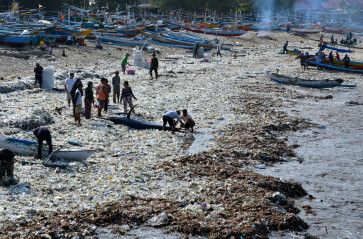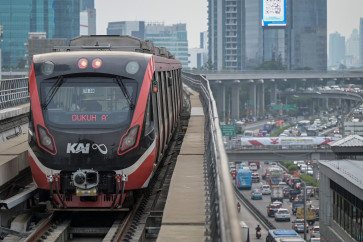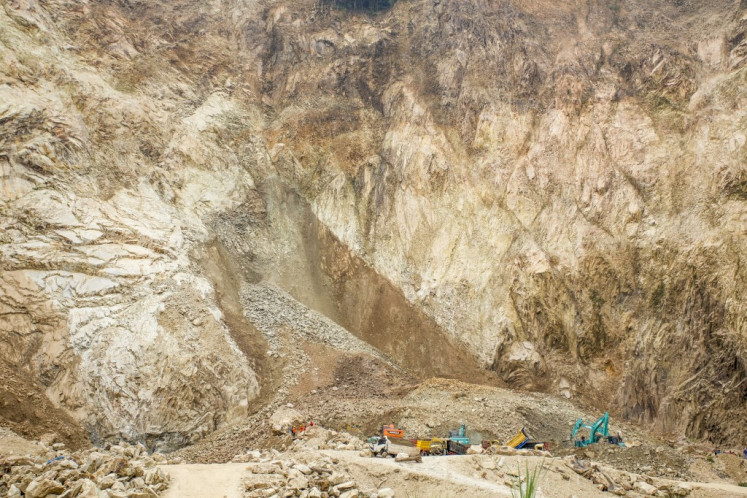Energy issues in the 100-day program
Since 2004 Indonesia has become a net importer of oil and that is why Indonesia withdrew its membership from the Organization of Petroleum Exporter Countries (OPEC)
Change text size
Gift Premium Articles
to Anyone

S
ince 2004 Indonesia has become a net importer of oil and that is why Indonesia withdrew its membership from the Organization of Petroleum Exporter Countries (OPEC).
The country’s oil reserves are only enough for 10 years. Even if exploitation for consumption and exports become more extensive, coal reserves will not cover more than 19 years and 45 years for natural gas.
(Statistical Review of World Energy, published in 2009 by British Petroleum).
As a country where 60 percent of its primary energy comes from oil (Energy Information Agency), Indonesia had to raise fuel prices when oil prices hit US$147 per barrel in 2008.
Indonesia’s commitment to reducing carbon emissions to address global warming is also relevant to this.
During the G20 meeting last September in Pittsburgh, President Susilo Bambang Yudhoyono declared Indonesia’s long-term emissions target for the 2020-2050 period.
As an illustration, the total consumption of primary energy from fossil energy was 95 percent in 2006, while the target until the year 2025 as stipulated in the 2006 presidential is 85 percent. This means there must be at least a 0.5 percent reduction per year.
This estimated target will be difficult to achieve because fossil energy consumption is growing by about 8 percent (Indonesia Energy Outlook and Statistics, published in 2006 by the University of Indonesia). This is the challenge Indonesia faces to prove its commitment.
The 100-day program should therefore be used to gauge the seriousness of SBY’s commitment to reducing emissions.
The first challenge is to ensure the vision, direction, energy demands and emissions targets are clearly understood by all ministers.
They are expected to fully understand that energy and emissions issues are collective, which is related to policy, investment, research and technological development and field implementation. They should be able to translate it into the scope of their duties.
Second, is to ensure that measurement and targets related to energy issues become proportionally incorporated into assessing the performance of ministers.
The writer is a researcher at “Solar Energy Research Group” (Kanagawa Institute of Technology, Japan), professional and international consultant for energy and management.









